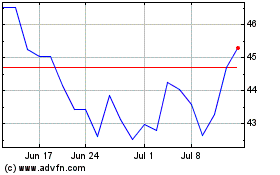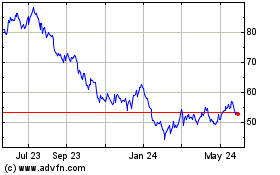Commodity investing has had a rocky road over the course of 2012
as many products have seen divergent returns in the space. Some,
such as corn and many of the other grains, have seen solid
performances while other natural resources have been under
significant pressure in year-to-date terms.
One such commodity segment that has had a 2012 to forget is
undoubtedly the rare earth metal space. These metals include key
products such as cerium, neodymium, and Ytterbium, which are vital
components in a number of high tech applications around the world
(see Rare Earth Metal ETF Jumps on WTO Tensions).
The year started off promising enough for the space, as worries
over a brewing supply shortage and a rebounding economy helped to
send prices for many of these key products much higher. In fact,
several countries squared-off against China at the WTO over the
country’s rare earth export restrictions (See Could This Be the
Year for These Mining ETFs?).
The current rare earth metal king, China, controls about 90% of
the market and has repeatedly threatened to close off even more
supplies to the outside world have riled the supply/demand balance
for years. Thanks to this overhang, many remain incredibly bullish
on rare earth metal producers, and this was evidenced by a strong
performance in the space to start 2012.
However, this did not last, especially when looking at the top
ETF option in the rare earth metal world, the Market
Vectors Rare Earth/Strategic Metal ETF (REMX).This
product, which tracks a group of companies that are engaged in some
aspect of the mining process for these metals, started the year up
23% in the first month but thanks to a horrendous six month period,
is now sporting a year-to-date loss of nearly 15%.
What Happened
Basically, the global slowdown has been absolutely devastating
on the ‘high beta’ mining segment of rare earth metals. Demand for
a number of products that are big users of rare earths—such as
consumer electronics, clean energy, and defense applications—have
seen their demand levels or outlooks fall apart in the past few
months.
Furthermore, according to mineralprices.com, only one of their
followed rare earths is actually in the green on the year from a
performance perspective. Instead, most have fallen by more than
17%, including four that have witnessed losses exceeding 40% from a
one year look (also see The Comprehensive Guide to Gold ETF
Investing).
In addition to the global slowdown, broad speculation of a rare
earth bubble being popped is also running through the market as
well. “We had a bubble last year – an anomalous speculative blip –
that ran REE prices to the sky. It happened just as the junior
miners were coming into full bloom” said Jack Lifton of Technology
Metals Research. “At that time, I would say most of the junior REE
exploration companies were overvaluing their projects something
fierce. Then the market herd jumped in and ran the prices way
up.”
Lifton also noted that of the 260 U.S. listed rare earth mining
firms, only one, Molycorp (MCP) is actually at
production stage. MCP isn’t exactly having a great year either, as
the stock is down almost 60% year-to-date, and is trading close to
its 52 week lows putting the stock down 80% over the past one year
(also see Time to Exit the South Africa ETF?).
Given this terrible performance from one of the American market
leaders, the situation could be pretty bad in the coming months for
those firms that are in the space, but haven’t yet produced
anything. This could be especially true if rare earth metal prices
stay depressed, making it unprofitable for many of these
exploration firms to bring their mines online, potentially casting
a gloomy tone over the entire market space.
Yet with all the doom and worries over the space, the fact
remains that rare earth metals are crucial to modern life. These
products are in everything from flat screen TVs and steel alloys,
to jet engines and hybrid cars, and in many cases, their
replacement by other minerals or substances is incredibly
expensive, impractical, or downright impossible.
Given this reality, a closer look at the aforementioned REMX
could be in order. The product offers broad exposure across the
rare earth metal industry, focusing in on various mid cap and small
cap producers (read Has The Junior Gold Mining ETF Lost Its
Luster?).
Furthermore, the fund is pretty well diversified from a country
perspective, putting no more than 25% of assets in any one country,
and instead allocating at least 5% to nine different nations. The
ETF is also well spread out from an individual security perspective
as no one company accounts for more than 7.5% while all of the top
ten make up at least 5% of assets.
Still, make no mistake about it, REMX has had a terrible run
over the past year, slumping by nearly 40% in the time period.
However, this could finally be making this important market segment
a decent choice for those with extremely long time
horizons and a stomach for volatility.
Rare earths will not disappear any time soon, and since many
valuations are now reasonable in the space, it could be time to
take a closer look at REMX for a new way to play commodity mining
that has the potential for an extremely robust future. The fund
could offer a more diversified way to target rare earths while
doing so at a reasonable cost and with tight bid ask spreads as
well.
Want the latest recommendations from Zacks Investment Research?
Today, you can download 7 Best Stocks for the Next 30
Days. Click to get this free report >>
Follow @Eric Dutram on Twitter
MOLYCORP INC (MCP): Free Stock Analysis Report
MKT VEC-RAR ERT (REMX): ETF Research Reports
To read this article on Zacks.com click here.
Zacks Investment Research
Want the latest recommendations from Zacks Investment Research?
Today, you can download 7 Best Stocks for the Next 30 Days. Click
to get this free report
VanEck Rare Earth and St... (AMEX:REMX)
Historical Stock Chart
From Oct 2024 to Nov 2024

VanEck Rare Earth and St... (AMEX:REMX)
Historical Stock Chart
From Nov 2023 to Nov 2024
